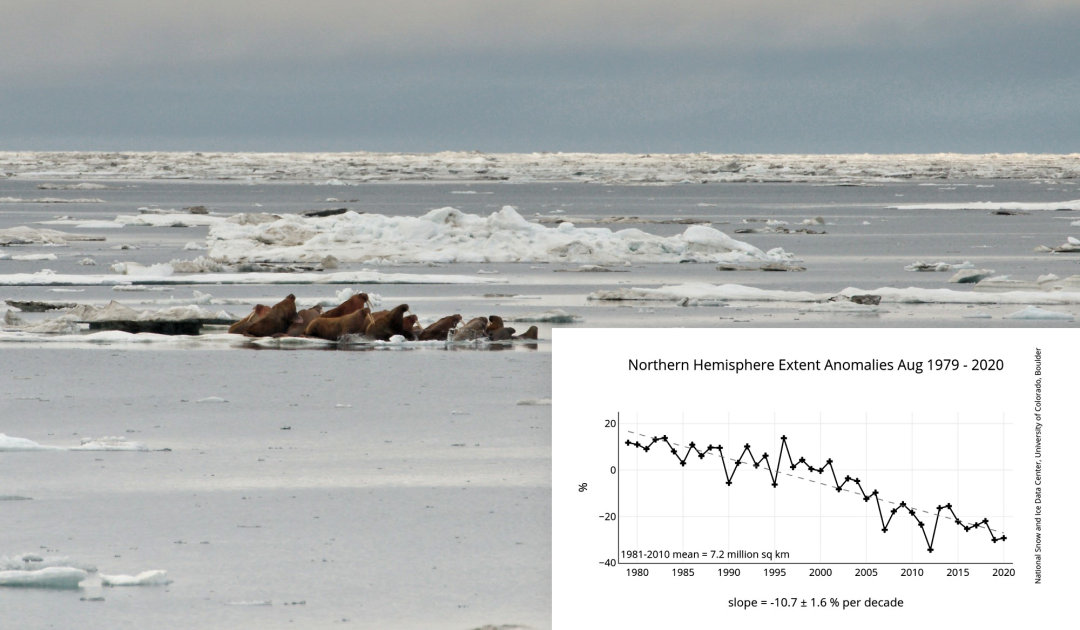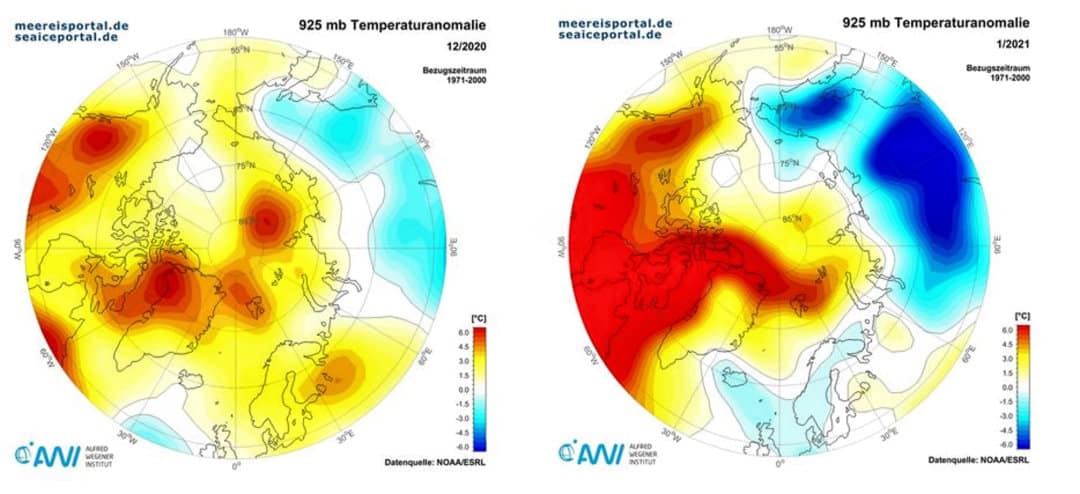
With the massive snowfall in January and early February and the sudden cold spells that followed, many countries in Europe and North America were quite overwhelmed. Public life, already restricted by COVID-19, had come to an almost complete standstill, with many people imagining themselves in the polar regions instead of at home. According to the experts, the reason for the turbulence is to be found in the Arctic and the weak polar vortex, driven not least by sea ice development in the Arctic Ocean.
As “Meereisportal”, the information portal of the Alfred Wegener Institute for Polar and Marine Research and the University of Bremen writes, the sea ice extent in December and January was in the same range as in the past two years. But the downward trend is still evident even in the middle of winter (December / January) and amounts to about 3 percent per decade. Currently, scientists report a sea ice area of just under 14.3 million square kilometres with a daily increase of just over 47,500 square kilometres per day. Regionally, however, the situation looks very different: While in the region around Svalbard to Novaya Zemlya less ice is floating in the Arctic Ocean and water temperatures there are above normal, ice masses in East Greenland and in the central Bering Sea have moved further south than usual. And in Russia, the pack ice edge has migrated far out to sea along the coast of Chukotka, Kamchatka and in the Sea of Okhotsk.

If you look at the temperature deviations from the average in the past months, you can see that in various areas that were supposed to be freezing cold, the temperatures were several degrees higher than average. In other places, such as Siberia, it was much lower. This in turn meant that the annual polar vortex, a gigantic low-pressure area over the central Arctic, hardly occurred at all. This did not create a stable polar jet stream in the atmosphere where weather patterns occur, but rather a fluctuating belt that allowed cold Arctic air to push as far as Greece and as far as Texas in the United States. When these air masses break down again, warmer air masses to the south immediately come north again, leading to the rapidly rising air temperatures as they are right now.

The anomalies that are now being observed have their origin, according to various researchers, in the loss of sea ice in the Arctic, or in the warming of the water masses in the Arctic Ocean. These in turn are the result of global warming. But there is no real consensus, because other scientists regard the present situation as an exception that has come about because of the interplay of different exceptional situations. But will such exceptional situations be the rule in the future, or at least more frequent, which in turn would make them no longer exceptions? More extreme weather phenomena are likely to become more common, say an increasing number of climatologists.
Dr Michael Wenger, PolarJournal
More on the subject:





